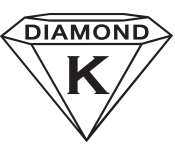
29 Nov 4 Drought Mitigation Tips to Improve 2023
It is the time of year when growers start preparing for 2023. With water availability a concern, here are four things ag retailers can recommend to growers to help them maximize their water next year.
Irrigation Uniformity
Poor-performing sprinkler heads, micro irrigation nozzles, and drip irrigation emitters can significantly reduce the performance of water distribution in irrigation systems. Less than perfect irrigation systems can directly affect crop performance and have other negative attributes. This is perhaps the simplest thing to fix and contribute to the best possible crop returns. Remind growers to check all heads and change out worn-out, damaged, and pugged heads.
Irrigation Efficiency
Reducing water use during a drought can offset rising water costs, reduce expenditures for energy, and improve revenues through higher crop yields and improved crop quality. Updating and improving irrigation equipment for efficiency can ensure each drop of water is used wisely. Recommending irrigation technologies like sensors, fertigation injectors, Diamond K Applicator, irrigation probes, and more can help overall performance.
Water Infiltration
The quicker your water soaks into the soil the less likely it will be lost to evaporation or erosion. High salts in soil, poor water quality, hydrophobic soils, and poor soil management practices reduce the infiltration rate and make it difficult for water to penetrate the soil. To increase water infiltration, if irrigating, test the water and develop a treatment plan. Then soil sample and develop a plan to reduce sodium, salts, and magnesium. Finally, add water and soil surfactants to irrigation and spray programs to improve infiltration and mitigate poor water or soil conditions.
Water Holding Capacity
Increases in soil temperature during drought conditions can reduce soil organic matter decomposition and increase the release of carbon dioxide. During this process, additional mineral N, mostly in the form of nitrate, will be released into the soil system. Protecting and improving your soil organic matter is vital to maintaining the water-holding capacity of your customers’ soil.
Increasing levels of soil organic matter can increase the cation exchange capacity (CEC) of soils. This not only increases the holding capacity of nutrients (calcium, potassium, magnesium, iron, manganese, ammonium, and others) but also water. According to the USDA-NRCS, the most conservative estimates suggest that every 1% increase in soil OM will help soils hold up to 20,000 gallons more water per acre. That’s almost an acre-inch of water!
To improve organic matter, recommend reduced- or no-till, cover crops, mulching, residue management, and adding or increasing calcium, sulfur, and carbon to fertilization programs.
Contact your Diamond K Representative for help developing a water quality and/or soil fertility plan to address reduced water use.


